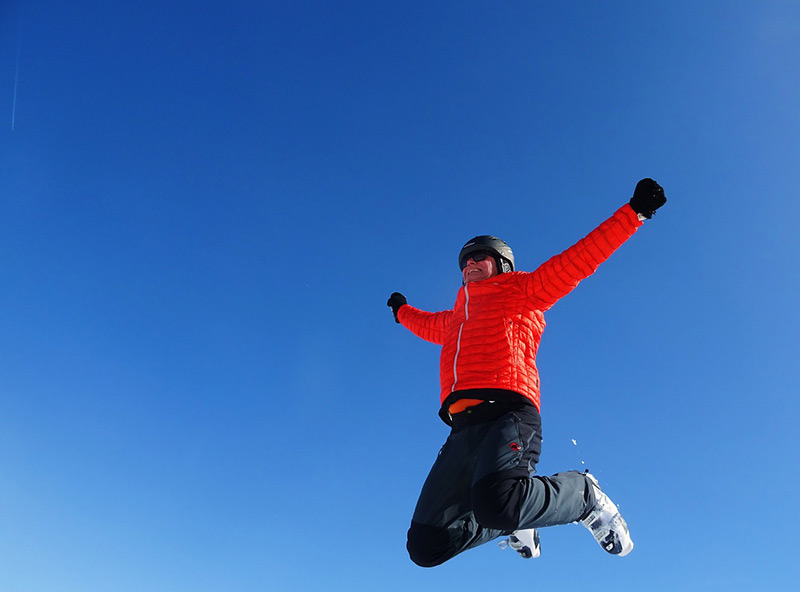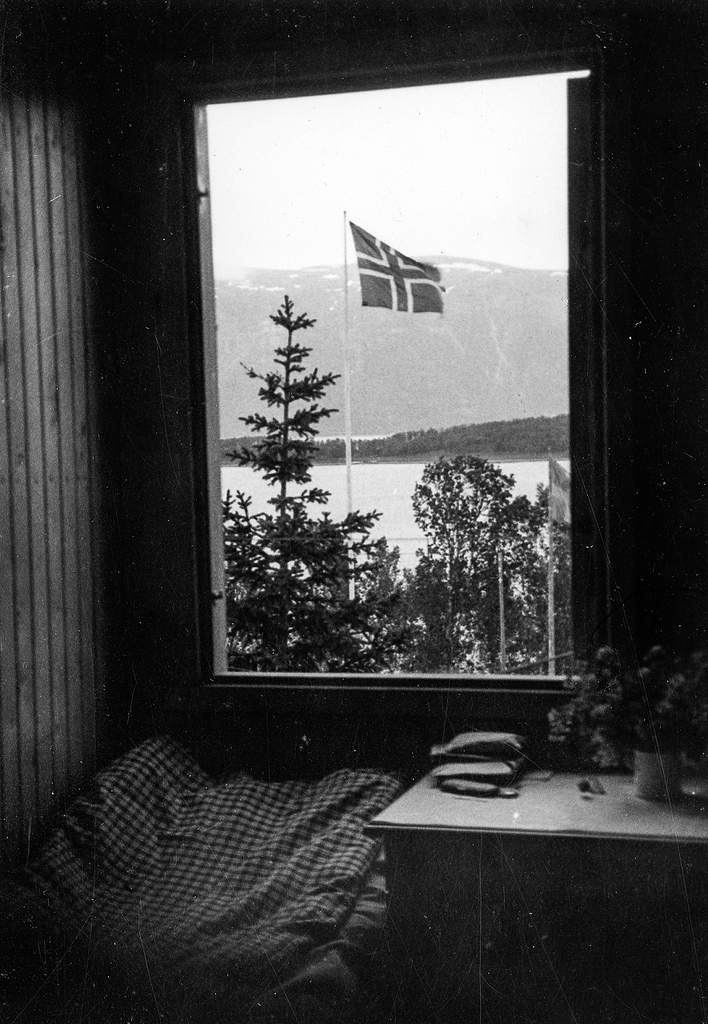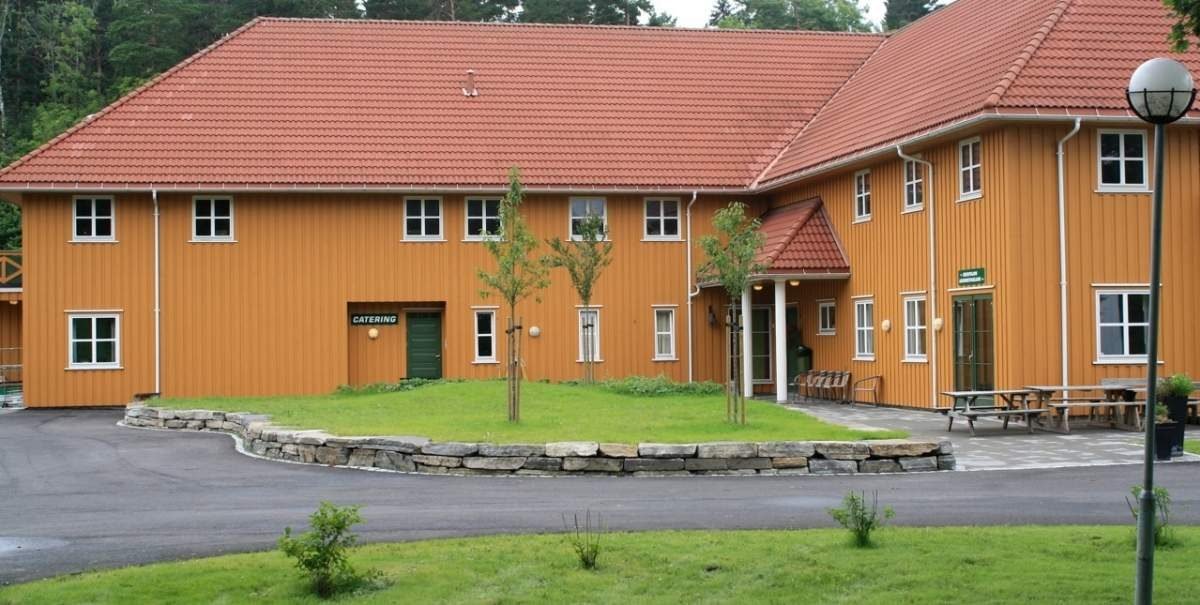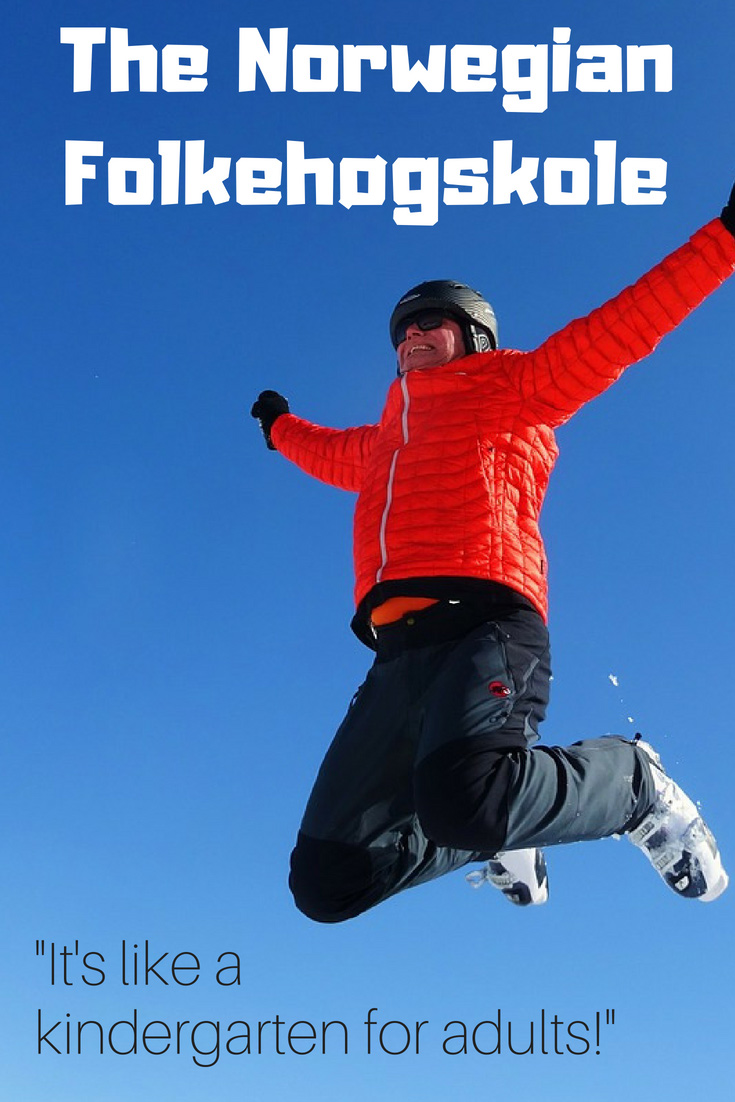
Introducing the folkehøgskole, yet another unique gem found (more or less) only in Norway.
What is a folkehøgskole? It’s a bit hard to explain; the easiest way is that it is a sort of organized gap year. Or a kindergarten for ‘adults’ as I’ve heard it described as here in Norway.
It gives students an opportunity to dedicate a year to something they’re passionate about or to discover new passions. It can also work as a sort of technical school; it all just depends on which linje or subject of study that you choose.
My personal experience
In 2011 I went to Folkehøgskole, and the year I spent there is the reason that I ended up moving to Norway permanently (well, fingers crossed) several years later.
How I found out about Folkehøgskole and ended up there is quite a long story, which I won’t bother with here.
Being from Colorado I’d long been passionate about skiing, so naturally, I ended up at a school that offered a skiing linje – one of the roughly half-dozen subjects offered at the school I chose: Rødde Folkehøgskole which lies just outside of Trondheim; the city I now call home.
Hundreds of options
There are around 80 Folkehøgskoler spread out all over Norway, all of them offering different subjects to study.
The Folkehøgskole website has their count of 675 different linje falling into the general categories of outdoor life and sport; travel, culture, and solidarity; media and communication; music and theatre; art and craft; adaptive programmes; and… others.
To really encapsulate all the different options for what one can do a Folkehøgskole would take a novel. Let’s just say that there is something for everyone, and then some!
Roots in farming education
Folkehøgskole has been around a lot longer than it may seem. The history stretches back well over 100 years.

Though they didn’t have much electronic music, video game, travel, or filming linje as they do today. Folkehøgskole started mainly as farming schools, teaching young adults how to run and manage a farm. It wasn’t until later in the 20th century that it started to include more exciting options.
A number of them have a Christian history to them, and many still operate as such today. Though, in my own experience, they are extremely open to how involved students want to be in those functions.
An action packed year
While I did just spend a year skiing – taking trips to other areas in Norway, Sweden, and even Switzerland to do so – there was a lot more to my year than that.

There are organized courses that you choose from; my memory is a bit hazy now, but I do remember a baking course, a skateboarding course, surfing, avalanche safety course, and numerous trips around the region to do different activities like water skiing, gymnastics halls, etc… I’m pretty sure they even made me read a book or two!
We also spent the year fundraising for a chosen charity by putting on plays, carnivals, and other activities for local kids and adults. I acted in a play and conquered my fear of dancing in front of other people. They capped it all off with the entire school taking a trip to Egypt to soak in some sun and take Facebook photos of us kissing the Sphinx.
Life skills
The opportunities to travel, learn new skills, and meet people are just a few of the long list of reasons why I recommend Folkehøgskole to anyone. More than just a gap year, Folkehøgskole is the experience of a lifetime.
Also, for anyone considering undergraduate studies in Norway, Folkehøgskole also gives you something like four whole study points in certain subjects! (About a semester worth)
Even if you don’t speak Norwegian, Folkehøgskole is still an option. I could hardly introduce myself på norsk when I first arrived at Rødde.

But by the end of the year, I could understand the majority of what people were saying and, most importantly, I was able to order very expensive beer in the local lingo.
If you want to learn Norwegian, you couldn’t find a better way than to do it while spending a year at Folkehøgskole.
Folkehøgskole is a bit of an enigma, its something that is difficult to explain; both because of the wide variety of experiences the 80 schools offer and because there is little else to compare it to elsewhere. It may sound like just a fun way to spend a year, but it can change your life. It certainly changed mine.
How to apply
On average a year at Folkehøgskole will run you 114,000 Norwegian Kroner, which is roughly equal to US $14,500, 10,380 British Pounds, or 1.71 Bitcoin (at the time of writing this anyways).
This covers pretty much everything: room and board, the trips and fees involved with your chosen linje, etc…
When it comes to finding a school and applying: each school has its own website where you will find out more about their courses, instruction, school life and the school itself.
When you have decided which of the schools you are interested in, send an application to this school which is found on their website.

Most of these will be in Norwegian, so it can be recommended to email the school to ask for guidance on filling it out. When the school receives your application, you will receive an answer within a couple of weeks.
If you are accepted, you will have a few weeks to make a decision and pay a registration fee (usually around NOK 2100).
If you are from outside the EU/EEA you will need to obtain a visa to attend Folkehøgskole.
The Norwegian Directorate of Immigration (UDI) requires that applicants from countries outside the EU/EEA area deposit a guarantee amount (a good faith payment) in the school’s bank account before processing an application for a residence permit.
Have you attended a Norwegian folkehøgskole? How was the experience for you? If you enjoyed reading this post, why not share it on Pinterest:



Interesting. What do you mean there is no upper age limit? Are there any statistics available on age? I see this as a place where people at the end (or in the middle) of unfulfilling careers may be attracted to go. Does that happen often? Would a 40 year old person be out of place there?
Nearly all students are between 18-25 years old. Most students who attend a folkehøgskole have just finished secondary school in Norway. While a 40 year old can attend, the person would probably feel a bit awkward and out of place having to try to make friends with people half their age. I know that there are 2 schools that are for pensioners and older people, but they only offer short courses that last a few days. I will be attending a folkehøgskole this August with the main focus on my “linje (main course) being the Norwegian language. So I will be there from August to May next year, with me probably continuing to live in Norway afterwards.
Hope that answers your question.
Similar type culture schools exist in Japan which teach traditional Japanese cultural subjects mostly to Japanese students who tend to be in their teens to 20s. (Kendo, ikebana, tea ceremony, origami, calligraphy….)
Gap year…but when? Between high school and college? Between college and graduate school?
Between secondary school and university.
My son is currently studying at the Fosen Folkehøgskole in Norway. He loves it. It was the perfect “organized” gap year for him.
December 2022
Hello, My18 year old son has expressed interested in doing a GAP year in Norway. Looking back how did yours go? What would you do again? What do you wish you knew in choosing a “school” course of study, everything in general. Thank you.
PS, the national health service covers medical care under the residency permit.
I’m going to be attending a folkehøgskole this year with my main course focusing on Norwegian language and culture. I already know a lot of the language already and plan to take the language test so I can study Norwegian-taught university programs.
You made a mistake when saying that Folkehøgskoles gives you four whole study points in certain subjects for university. This is not true. You can’t use a folkehøgskole to cover subjects at university, as a folkehøgskole is completely separate from the education system, and they don’t conduct any exams or give out degrees or anything like that. If you finish a whole year at a folkehøgskole, then you get 2 points which can be used to help enter university, as all degrees have a point base system, which can range anywhere from 30 points up to 70 points. The higher the points that are needed to enter that certain degree, the more difficult it is to enter. So you will find law/medicine/engineering and veterinary medicine requiring a high number of points to be accepted.
I attended Birkeland Folkehogskole for a year between high school & college and it was a wonderful experience. As the daughter of 1st & 2nd generation Norwegian Americans, I chose a Norwegian Culture linje. Courses included Norwegian cooking & baking, Hardanger embroidery, sewing, weaving & ceramics. I was also given materials for independent study of Norwegian. We all ate together in the dining hall (where they passed the bottle of cod liver oil at every breakfast), did a lot of hiking & took a group trip to Germany. A great advantage was having most of my aunts, uncles & cousins nearby in Kristiansand & Grimstad. By the time I left that May, I was fluent in reading, writing & speech. In fact, I chattered with my Mom all the way home from the airport & never realized it was in Norwegian and my Dad & sister hadn’t understood a word. The next year, an American cousin attended Birkeland, as well, and also loved the experience. I’d highly recommend folkehogskole for anyone of Norwegian descent who’d like to reconnect with their heritage.
I attended Ronningen folkehogskole in Oslo many years ago (1984-85). It was amazing year for me. Attending folkehogskole was a wonderful opportunity for me to learn about Norway while being in a structured, yet relaxed environment. We had students from all parts of the world so I was also introduced to a little of their culture as well. I still have friends from this year and have gone back a few times to see them. The year I spent at folkehogskole also gave me the opportunity to grow and learn more about myself before I ventured on to college. I highly recommend spending a year at one of these schools. My son is currently a senior in high school and is considering following in my footsteps.
How did your sons year go? My 18year old son is interested in studying in Norway for a GAP year after high school this spring ‘23. Any advice?
Hi Jean, I hope your son decided to go. My daughter attended Harstad school and is loving it! It has made her much more ready for college, and the confidence she has gained is tremendous. She is doing the friluftsliv program. After the interruptions of Covid during high school, and just getting through, she needed a year to be away and just live without grades, etc. She’ll be attending college back in the U.S. this fall but the year has been very, very valuable.
I am retiring and considering a move to a Scandinavian country. The folkehogskole sounds wonderful as I would like to continue learning and I love Scandinavian culture, style, oceans and winter.
Has it become more common for “pensioners” to attend folkehogskole? And, do you know if someone who attended folkehogskole and volunteered at say, a park, would be considered for residency?